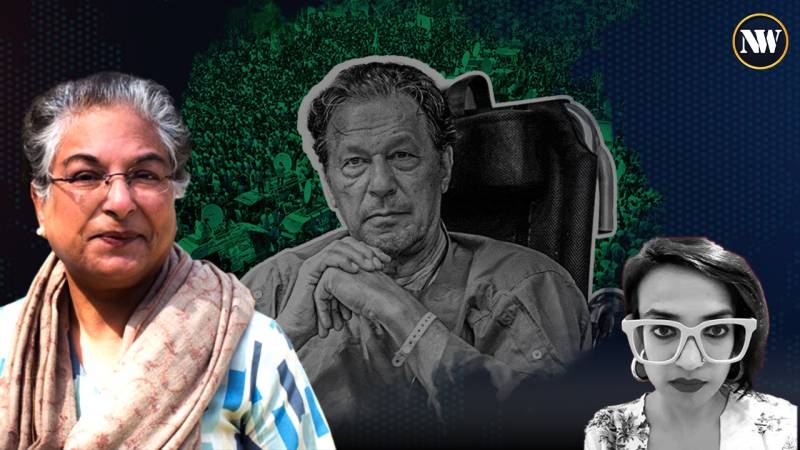The political landscape of Pakistan has long been marked by complexity, intrigue, and occasional turbulence. In a recent insightful interview, Hina Jilani, Chairperson of the Human Rights Commission of Pakistan, shared her perspectives on the ongoing political instability and its implications for the country's democratic framework.
The conversation commenced by addressing the recent statement made by former Prime Minister Imran Khan, in which he expressed grave concerns about his personal safety. Hina Jilani's response was balanced, recognizing the legitimacy of apprehensions for one's safety, especially in the realm of politics. However, she emphasized the crucial need for substantial evidence to support such claims, cautioning against the repetition of allegations without credible proof. The interview highlighted the significance of a credible platform to address these concerns, where claims can be substantiated transparently, rather than through media outlets.
Ms. Jilani underscored that public figures, especially leaders, hold the responsibility of presenting their concerns responsibly and effectively to the appropriate forums. This not only enhances the credibility of their claims but also fosters public confidence in the process.
Imran Khan's appeal to the Supreme Court Chief Justice, along with references to historical incidents, prompted a discussion on the formal handling of such matters. Hina Jilani's response echoed the principles of transparency and accountability. She stressed the importance of open court hearings and credible forums as avenues to address such concerns. The interview delved into the complexities surrounding the Supreme Court's role in these matters, acknowledging the challenges of public perception and maintaining its independence.
While the interview recognized the challenges faced by the Supreme Court, it reinforced the necessity of adhering to established legal processes to ensure the legitimacy of actions taken and decisions made.
The discourse then shifted to recent instances of political protests that escalated into violent clashes between supporters and law enforcement agencies. Hina Jilani navigated the delicate balance between the right to peaceful protest and the need to maintain law and order. She emphasized the proportional use of force by law enforcement, aligning with legal parameters and ethical standards.
The interview also cast a spotlight on the misuse of anti-terrorism laws, cautioning against their overuse. Jilani argued that such an approach not only undermines public trust but also stifles legitimate dissent and hampers constructive political discourse. The delicate equilibrium between upholding democratic principles and ensuring public safety emerged as a focal point in this segment of the conversation.
The interview delved into the broader challenges facing Pakistan's democracy. The history of military interventions and manipulation of democratic processes was discussed as a backdrop to the current political environment. Hina Jilani expressed concern over recent revelations that exposed the manipulation of institutions and individuals, which have eroded public confidence in the democratic process. She emphasized the urgent need to address these challenges to safeguard the integrity of Pakistan's democratic institutions. The dialogue underscored the importance of transparency, accountability, and a commitment to democratic values as essential components in strengthening Pakistan's democratic framework.
As the interview concluded, it was evident that the road to political stability and robust democracy is riddled with complexities. The insights shared by Hina Jilani emphasized the importance of transparent, accountable, and legitimate channels for addressing concerns. A harmonious coexistence of political expression, law enforcement, and democratic principles is paramount.


